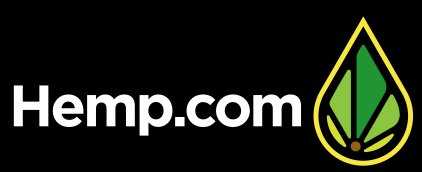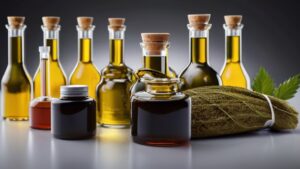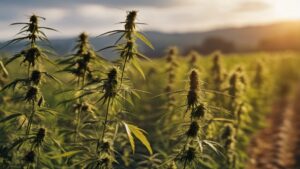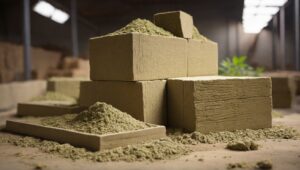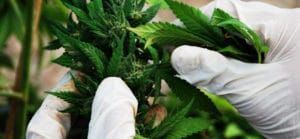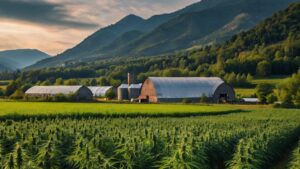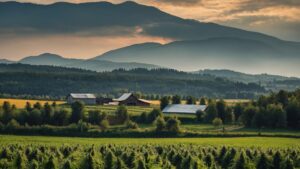With so many new products available in today’s rapidly-growing CBD and hemp market, it’s not surprising that many consumers are finding product labels confusing. Arguably, one of the greatest sources of confusion is the simple word “organic,” especially as it relates to CBD oil.
Is “organic” simply a marketing buzzword, or does it represent an actual benefit to CBD oil and its effectiveness? What exactly does “organic” mean? And are organic products better than their non-organic counterparts?
To answer these questions, here’s an overview of organic CBD. Understand what it is, how it processed and why it’s considered a superior choice.
Organic CBD Derived From Hemp
-
 Rated 0 out of 5$55.07
Rated 0 out of 5$55.07
What is Organic Hemp?

We’ve identified what CBD is — but how does the term “organic” relate to CBD?
According to the US Department of Agriculture (USDA), the term “organic” refers to any item that is grown or produced without the use of genetically modified organisms, pesticides, synthetic fertilizers, sewage sludge or ionizing radiation. The term “USDA certified organic” means that a government-approved certifier has inspected the growing and processing conditions to ensure they meet official standards.
To this end, “organically-grown hemp” refers to hemp that has been grown under these stringent conditions. Therefore, “organic CBD oil” (or organic hemp oil) is CBD oil that’s organic on two levels — it’s extracted from organically-grown hemp and then it’s processed with no synthetic chemical additives.
Interestingly, more and more farmers across the US are recognizing the value of producing organically-grown hemp, with some experts claiming that organic hemp farming promises to be something of an upcoming “gold rush” for America’s produce growers.
In addition, many of today’s most conscientious growers are now participating in “regenerative organic” practices — organic farming methods that emphasize soil health and maintenance, while conserving soils and pastures so that the land will continue to be sustainable for generations to come.
Why Choose Organic CBD?

From a nutritional standpoint, chemical pesticides and fertilizers can drain the soil of its natural nutrients. In addition, studies have shown that fruits and vegetables treated by certain pesticides can cause allergic reactions in some people. It’s important to note that there’s still some debate as to whether or not pesticides actually trigger these reactions or whether other forms of food allergies are the cause; but many people are convinced that organically-grown products are a safer alternative.
Likewise, numerous studies over the years have determined that chemical pesticides and fertilizers can also have a devastating effect on the environment, harming both air and water quality, as well as killing wildlife.
If you’re purchasing products infused with other ingredients like Coconut MCT Oil, Beeswax etc, ideally those are certified organic as well.
Purchasing organic CBD oil assures you ingest products free of synthetic chemicals and that it was cultivated, harvested and processed without exposure to any toxic agents or additives.
Types of Organic CBD

The story of CBD starts with hemp, which is a variety of the cannabis sativa plant. Another variety of this same plant is marijuana — and therein lies all the confusion.
Although hemp and marijuana are both varieties of the cannabis sativa plant, there’s one major difference between the two. Marijuana contains the compound tetrahydrocannabinol or THC. This is what causes the psychoactive effect — or the buzz. Hemp, however, contains only 0.3 percent (or less) of THC — an amount so minuscule as to have no effect. This means that hemp-derived CBD products are essentially THC-free, and produce no psychoactive effect whatsoever.
Here’s a quick overview of popular organic CBD products available on today’s market:
- Organic CBD Isolate: The singular compound, typically 98-99 percent pure, used as-is, added to liquids or fatty products like butter.
- Organic CBD Wax: This concentrate is like a thick balm and can produce almost instant effects. Either CBD isolate or full spectrum.
- Organic CBD Topicals: Includes soaps, lotions, salves/ointments and shampoos enhanced with CBD.
- Organic CBD Edibles: Typically marketed as baked goods or candies.
- Organic CBD Vapes: Pure CBD liquids processed for vaping.
- Organic CBD Pills and Capsules: Early research shows promising nueroprotection, anti-anxiety and pain reducing properties.
What is Organic Full Spectrum CBD Oil?
Organic full spectrum hemp CBD oil refers to a pure, organic oil containing all the cannabinoids, vitamins, minerals, proteins and terpenes. Extracting from hemp guarantees it is non-psychoactive. And because it’s full spectrum, it may provide a wider array of benefits. The entourage effect can maximize the therapeutic benefits of CBD oil.
To learn more about the benefits of organic CBD oil read CBD oil and your health, 10 reasons to use CBD, Should I use a Full-Spectrum CBD or an CBD Isolate and more articles on the topic of CBD‘s
